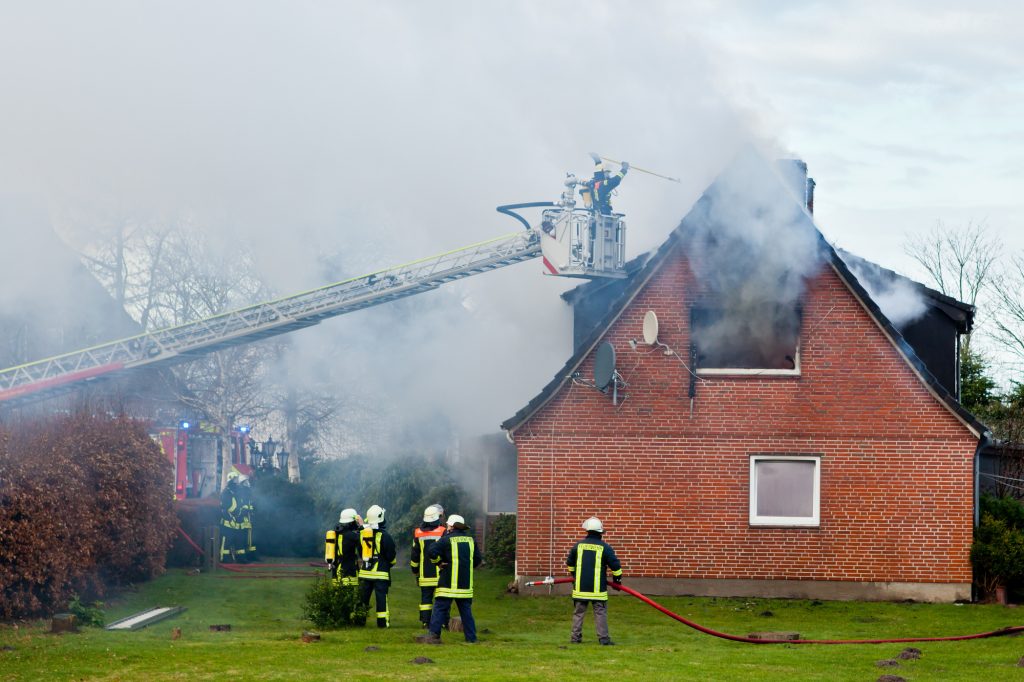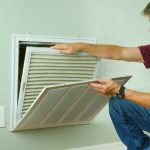8 Critical Safety Tips to Help You Avoid House Fires
Keeping your family safe should always be your number one priority. There are plenty of smart things people do to make sure their home is safe and secure from outside dangers, and yet there are dangers lurking inside the house that every homeowner should be aware of.
House fires are a serious hazard. But there are also simple yet important fire prevention tips that can make your home as safe as possible. Let’s take a look at a few things you can do right now to increase fire safety where you live.
8 Critical Safety Tips to Help You Avoid House Fires
The thought of a fire in your home is terrifying. Educate yourself and your family with these 8 critical safety tips to help prevent deadly house fires.
1. Test Your Smoke Alarms
Every home needs an adequate number of smoke alarms. This cannot be emphasized enough. Keep in mind that smoke alarms are often your one and only warning system in case of emergency.
But having smoke alarms in your home isn’t enough if they don’t function properly. That’s why it’s vital to test each of your alarms several times per year. Whether your alarms or battery-powered or hardwired, they should chirp when you press the test button.
2. Learn How to Use Your Fire Extinguishers
The first thing to do is make sure your home has fire extinguishers. There are several types, but be certain that you buy one large enough to at least put out a small fire yet is small enough to fit under the kitchen sink, under the bathroom sink, or in a broom closet in the hallway. Just make they are easily accessible.
They are easy to operate. Simply pull the pin, aim low, and then squeeze the lever slowly as you sweep the nozzle from side to side.
3. Don’t Leave Burning Candles Unattended
Believe it or not, one of the most dangerous things you can do is leave a candle burning when you leave the room. Leaving a lit candle unattended is asking for trouble. Keep in mind that it only takes a second for disaster to strike.
A good rule of thumb is to keep candles at least 12 inches from anything flammable. This could include paper, curtains, clothing, or furniture. They can be easily knocked over by a small breeze or someone bumping a table, causing the flame to come into contact with something that can ignite in a heartbeat.
4. Have an Emergency Escape Plan
When an emergency happens in your home, such as a fire, it’s vital to have a plan in place to ensure that everyone in the family understands how to react and where to go.
Take the time to sit down together as a family and establish an escape plan in case of disaster. The plan doesn’t have to be complicated. In fact, the simpler the better. It’s a good idea to make a diagram to put somewhere visible like the refrigerator so that everyone can see it as a reminder on a daily basis.
Your family’s emergency escape plan needs to include the best way to exit every room in the house and the quickest exit to get outside. You should also establish a place for everyone to meet once each person is safely out of the house.
You’d be wise to rehearse the escape plan several times a year. Every three months would be ideal. This way it remains fresh in everyone’s mind and there will be as little confusion as possible when the real thing happens.
5. Don’t Overload Electrical Outlets
The electrical outlets in your home are one of the biggest potential safety hazards, and yet something you likely give very little thought. Wiring can become old, frayed and damaged. Be sure to always have any electrical work on outlets done by a licensed electrician.
Other dangers include the use of electrical cords under carpets and doorways, and overloading power strips with too many plugs. It’s also a bad idea for major appliances like washers, dryers, and refrigerators to be plugged into an extension cord rather than directly into the wall.
6. Store Flammable Materials Properly
Flammable materials such as gasoline or heating fuel should never be stored inside the living area of your home. It’s important for these types of materials to be stored in the proper containers in a shed outside the house or in another space where carbon monoxide fumes cannot accumulate.
Store them away from any heat source and out of direct sunlight.
7. Learn the Proper Way to Put out a Grease Fire
Grease is a part of cooking that typically can’t be avoided. Thus it becomes your responsibility to learn how to deal with a potential grease fire.
The first thing to remember is to never douse a grease fire with water or any other liquid. Doing so will simply cause the fire to spread. Next, do not swat at the flames with a rag or towel.
The best way to handle a grease fire is to throw baking soda or salt at the fire from above. Or if possible cover the pan with a metal lid of a baking sheet. But if the fire gets out of control, get out of the house immediately and call 911.
8. Use Space Heaters with Caution
Space heaters can be great for heating small rooms. They can typically be purchased for less than $50 and are a good source of limited heat. But they can also be a fire hazard if not used properly.
As with candles, you should always keep space heaters away from flammable materials like curtains, clothing, or furniture. Never leave one running unattended or plugged in while you’re asleep or out of the house.
Keeping Your Family Safe and Secure
Having a good fire prevention plan is the best way to prevent house fires. The 8 fire prevention tips contained in this article are crucial to making sure that your home is as safe as possible.
Fire safety doesn’t have to be complicated. It’s a simple matter of being aware of potential fire hazards and how to properly deal with them.
Click here to see 4 energy saving tips every electrician should know.





